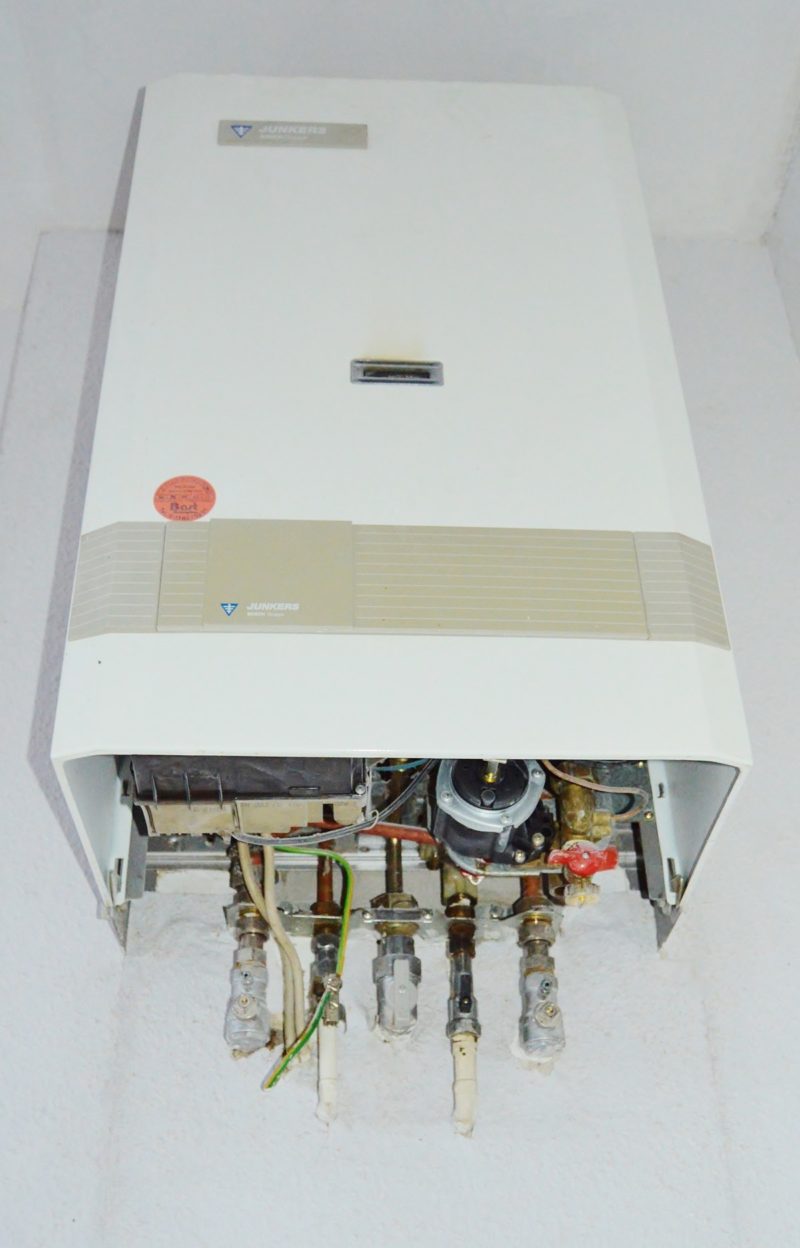Are you wondering about what happens when a water heater overheats? Stop wondering, and you come to the right place at the right time. Overheating is one of the most severe issues with electric water heaters.
Overheating can scorch or harm those who are in the home. Furthermore, overheating may ultimately damage the water heater, resulting in costly repairs or replacement. The element may overheat as a result of this.
So water inside the tank would take the high heat, resulting in scorching water coming out of the faucet. Many components may collapse totally if they are overheated in this manner. A plumber may remove the overheated tank or restore any broken items. If your water heater overheats, immediately call a professional plumber to remain safe. This is an overview; you should keep reading to discover more.
Common Reasons When A Water Heater Overheats
An overheated electric-powered water heater indicates a problem, which might result in the device malfunctioning or breaking. A malfunctioning thermostat, a jammed pressure relief valve, silt influencing the heat source, or a broken heating element are common reasons for overly hot water. You should read the explanations of overheating and learn what happens when a water heater overheats.
#1. Thermostat is failed
The thermostat is fine, to begin with when deciding the water heater’s temperature. The optimum temperature of the water heater tank is 120 degrees Fahrenheit, so double-check that the system is set to that temperature but hasn’t been modified by accident. Examine the reset button to ensure that the thermostat is functioning correctly; alternatively, it may tell the hot water system to warm up faster than it used to. If the thermostat looks to be malfunctioning, have it replaced by a professional plumber. You may also be interested to know how do i check my water heater thermostat.
#2. The pressure relief valve is not working
A pressure relief valve is a security instrument that enables water to escape if the temperature and pressure within the tank rise too high. It can be hazardous if the valve fails or becomes trapped in a closed state. The retained pressure within the tank may cause a water heater to spill or explode, not simply because of the boiling water. As a result, we suggest monitoring the pressure relief valve as part of the water heater’s regular servicing.
#3. Mineral build-up
There are usually minimal levels of dissolved minerals in the home’s water supply (and if there are excessive levels, it’s termed hard water). Although these minerals are not detrimental to human health but may build up within the tank water heater, making the water heaters work even harder than they need to.
#4. Broken heating elements
An additional problem with the heating element will be when it starts to fail (ground out). The component may become trapped before it burns out entirely, causing the water to overheat. Electrical water heaters might have one or two heat sources, so keep this in mind. When one of the elements fails, it might cause inconsistent water temperatures or other problems with a dual unit.
Safety Preventions For Water Heater Overheat
In water heaters, leakages are a common problem. Faulty plumbing hookups and leaky valves cause the issue. However, if you have an electrical water heater of poor quality or is more than a decade old, you may experience tank leaking. Needlessly tightened linkages or loose parts could be the source of the issue. If your tank has rusted beyond repair, replace it with the new one. The yellowish or sometimes reddish tint in the water from the tap indicates corrosion has built up in the water heater’s valves or pipes, which must be cleaned. In most cases, tap water feels like a nasty smell, making it unfit for human eating and exterior usage.
However, if somehow the water heater was just installed, the pipework could be a concern. As a result, contact a professional plumber or repair or replace the plumbing system creating the problem. The distortion in the tank signals indicates the electrical water heater is nearing the end of its useful life or requires maintenance, somewhat of looking for a replacement, purchasing a better one. Even though the equipment is fresh, it usually makes a cracking or grinding noise which may be noticed from a considerable distance.
This undesirable noise might be caused by corrosion or rust accumulation at the bottom of the tank, although faults also occur. If the water heater’s warranty period is still active, the firm should be able to repair and replace it. This is also a great idea to replace plastic inputs and outputs with metal ones to guarantee that the water heater stays functional and produces high-quality water. Steel inlets or outlets were required and recommended in hot water system systems since they are higher heat resistant than standard plastic. Because metal inlets or outlets seem prone to rust, they must be adequately maintained.
It’s A Wrap!
We are pleased to know that you have learned what happens when a water heater overheats. Overheating water heaters results in severe damage to the equipment, so consider the safety mentioned above preventions to provide any bad things. Click on these links to read related articles; know who fixes water heater and where is the reset button on a water heater. Thank you, friends, for staying with us.

